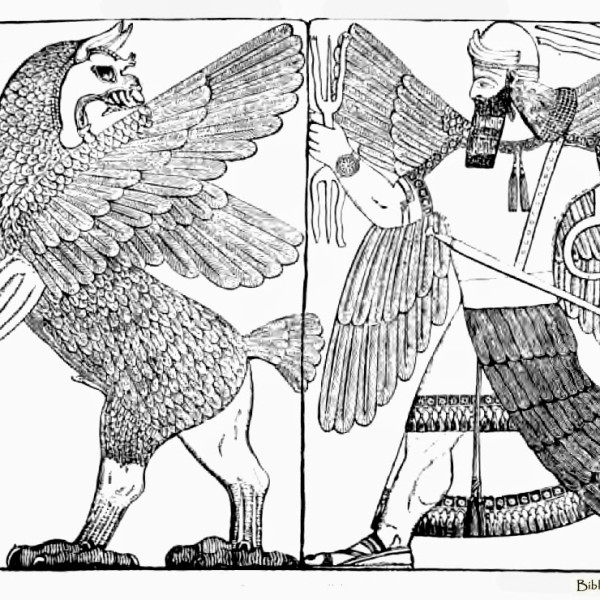In this series:
Ancient Israel vs The Blood Gods

This is the second post in a series on Christianity as Anthropology. In this, I'm sketching out in quick narrative form a synthesis of many different ideas. See my references here.
My previous post described how humans became evil. Now, I want to describe how this evil came to be focused on the destruction of ancient Israel.
As I detailed in my previous post, as soon as human beings became truly aware of their own mortality, they were consumed by a deep and abiding fear. This fear allowed those with violent power to enslave thousands of people simultaneously - achieving a sort of control dramatically out of proportion to their actual strength. But being enslaved by violence creates the urge to possess that power yourself. And so the greater the oppression became, the more people came to long for violence, both hating and lusting after that which controlled them.
This dynamic quickly spiralled into a world-wide worship of blood, with the warlords wielding this power of the gods, and all of society arranging itself around them. If violence was the power that could control fear, then violence would be the lord of this world, and everyone, from small to great, would struggle to be close to this god whose power could save them.
But in a world that worshipped violence, society could erupt at any time. A small infraction could send an entire kingdom into civil war. And this is what happened - civilizations would rise and fall, leaving almost nothing but ash and blood.
Until the warlords found a solution. If one person could be blamed for society's conflict, then the entire people could unite against this victim, unleash their violence, and appease their anger. In doing so, they would restore harmony to the nation, strengthen their bonds by joining against a common enemy, and satisfy their thirst for blood.
This is called the scapegoat mechanism.
It worked beautifully. No longer would kingdoms have to fall beneath their own anger; instead, they could simply sacrifice their weakest members for the preservation of society.
But crucial to this plan was that society truly believe their victims to be guilty, deserving of death. And so it became necessary for someone to advocate for these killings, to pick the victim and place the blame, to choose the most appropriate scapegoat for the group slaughter.
This someone was called the priest. This someone would assure the mob that the one they killed deserved to die, that this death was what the gods wanted, and that with this killing, the wrath of the blood-gods was satisfied.
This was how human civilization started, hand in hand with the religion of death.
But when Israel began, something changed. Just like every other nation, they had their blood-god, who would lead them in battle, and allow them to exercise violence. Just like every other nation, this blood-god demanded a sacrifice.
And so Abraham, father of the Jewish people, went out in the desert to sacrifice his son Isaac.
He tied Isaac to the altar, pulled out his knife, and raised it to strike. And then God stopped his hand, and broke ranks with the blood-gods of the ancient world.
Isaac became the father of the Jewish people, and Israel became what was possibly the first nation descended from someone under the knife. Other nations were founded by the ones who struck. Other nations were founded by the ones who chose the scapegoat and led it to slaughter. Israel became the nation founded by the scapegoat itself.
This distinction grew over time. Gradually they came to see their God as being a lone voice of dissent in a world of human sacrifice. And as his people, they were a standing protest against that world. This wasn't just a religious difference. Deep down, Israel knew that they were the ones every other god would have killed.
Their very existence unmasked the system that ruled humanity. Because Israel had been under the knife, their survival exposed the scapegoat mechanism for what it was - the mass killing of the innocent. And because civilization depended on the scapegoat mechanism to survive, Israel and the ancient world were fundamentally opposed.
Thus the main subject of the Hebrew bible: Israel against the gods.
Israel knew they had been marked. They were the scapegoats, the fitting victims. Their survival revealed the power-systems of the ancient world to be built on lies. And this meant that, like it or not, they were locked in a never-ending battle between them and the gods of blood.
Christianity as Anthropology: